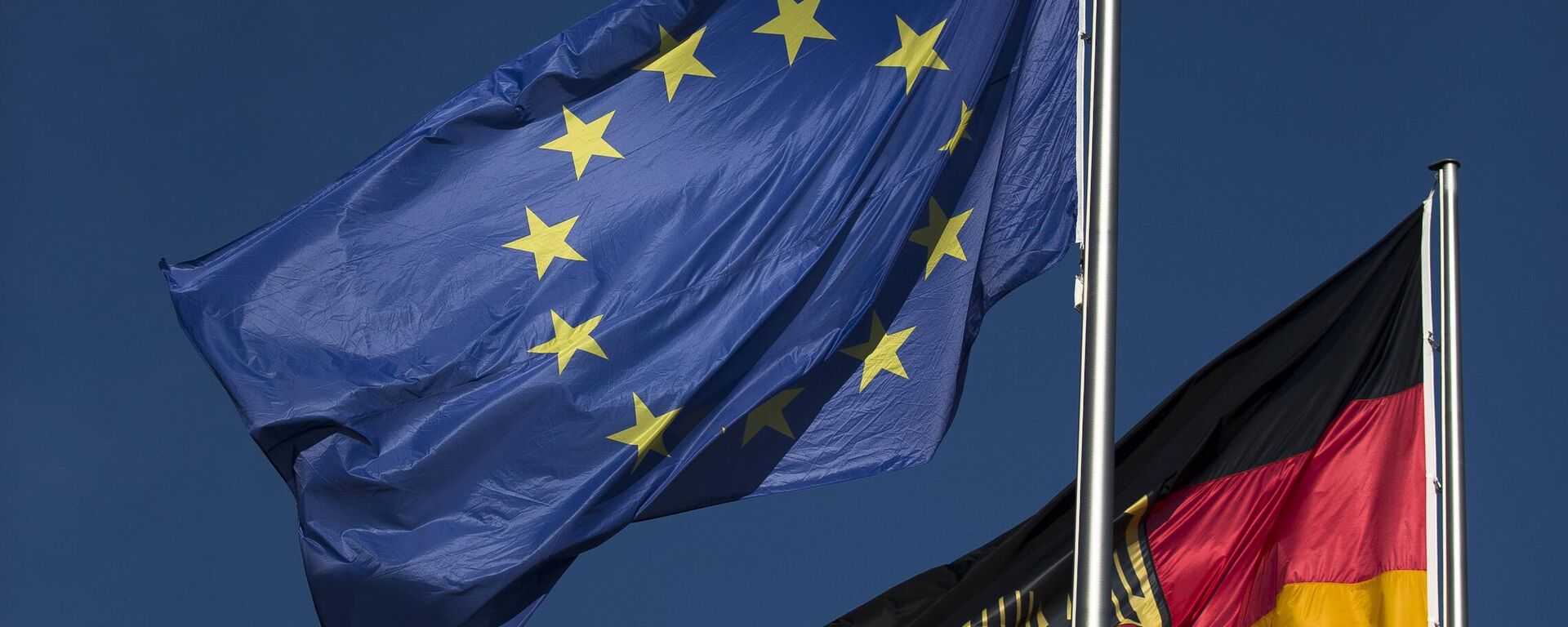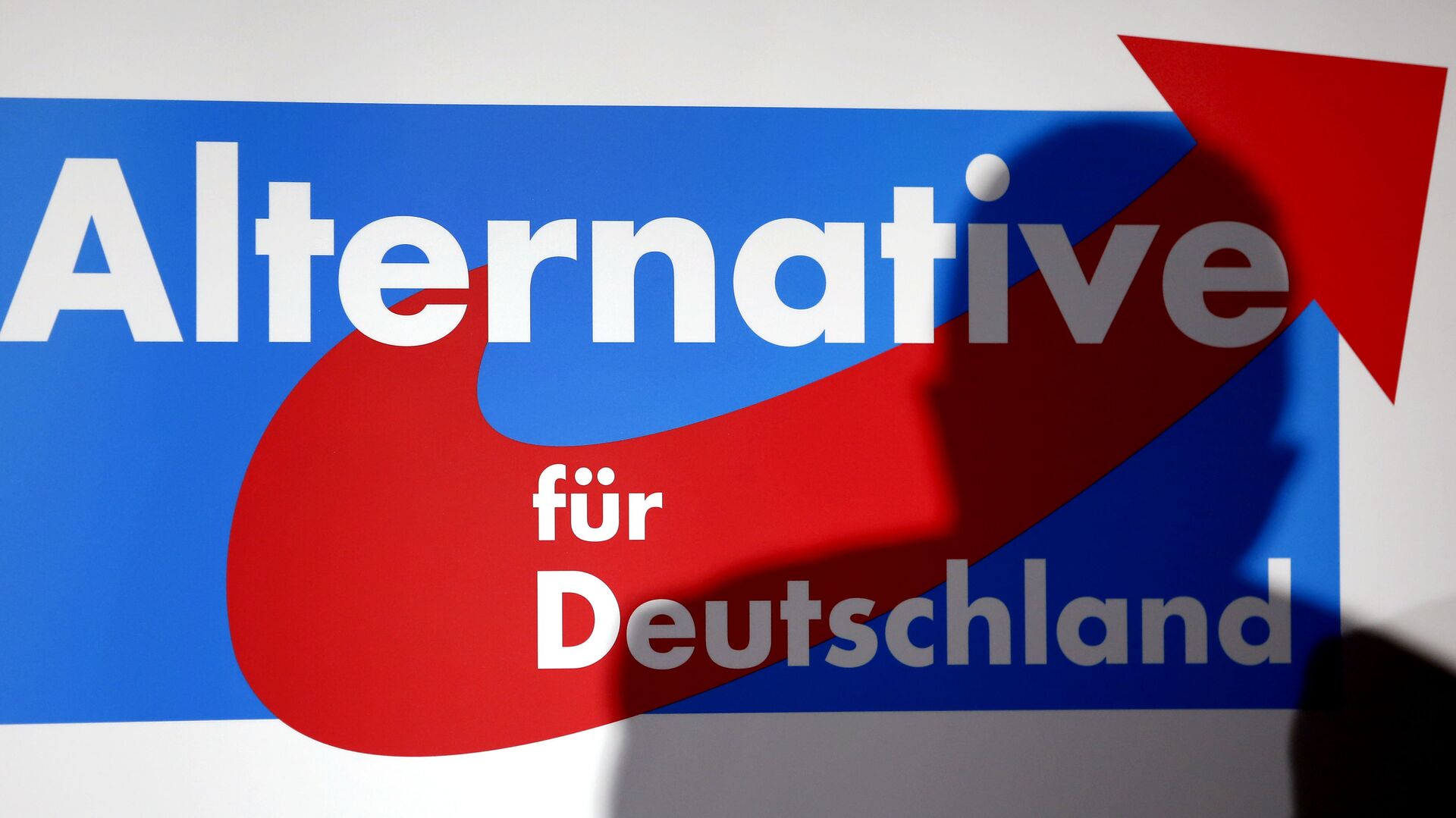https://sputnikglobe.com/20240124/german-establishment-plan-to-ban-afd-is-orwellian-1116344474.html
German Establishment Plan to Ban AfD is ‘Orwellian’
German Establishment Plan to Ban AfD is ‘Orwellian’
Sputnik International
The growing calls from German establishment party officials to ban the Alternative for Deutschland (AfD) aka Alternative for Germany, are Orwellian, international relations and security expert Mark Sleboda told Radio Sputnik.
2024-01-24T03:41+0000
2024-01-24T03:41+0000
2024-01-24T04:30+0000
analysis
mark sleboda
germany
social democratic party
alternative fuer deutschland (afd)
ukraine
europe
alternative for germany (afd)
https://cdn1.img.sputnikglobe.com/img/07e5/06/01/1083046508_34:0:3675:2048_1920x0_80_0_0_30d4eea3860dd4f2fc02ad3a7a0d55b4.jpg
Markus Soder, the conservative leader for the southern state of Bavaria, said the ruling could be a “blueprint” for the AfD and earlier this month, Saskia Esken, the co-chief of the ruling Social Democratic Party, came out in favor of a ban.Mark Sleboda, an international relations and security analyst based in Moscow told Sputnik’s Critical Hour that such plans bring Germany to “new, crazy Orwellian heights.”The rise of the AfD, Sleboda argues, is a direct consequence of the German government’s stance on Russia, not only regarding aid to Ukraine but also sanctions which have raised energy prices in Germany and the flood of Ukrainian refugees into Germany, which exacerbated the refugee and migrant issue in Germany and is a major pillar of the AfD’s platform.Sleboda notes that the AfD now represents 23% of all Germans and is leading the polls in every state that was a part of East Germany, and the response from the establishment is to “ban it.”“That is how scared they are of the people, you know, starting to pay attention to these unorthodox ideas diverting from current liberal domestic policy, but also pro-US foreign policy,” he explained.
https://sputnikglobe.com/20240123/germany-deserves-to-have-dexit-option---afd-lawmakers--1116324887.html
germany
ukraine
Sputnik International
feedback@sputniknews.com
+74956456601
MIA „Rossiya Segodnya“
2024
News
en_EN
Sputnik International
feedback@sputniknews.com
+74956456601
MIA „Rossiya Segodnya“
Sputnik International
feedback@sputniknews.com
+74956456601
MIA „Rossiya Segodnya“
political parties banned in germany, alternative for germany ban, die heimat
political parties banned in germany, alternative for germany ban, die heimat
German Establishment Plan to Ban AfD is ‘Orwellian’
03:41 GMT 24.01.2024 (Updated: 04:30 GMT 24.01.2024) On Tuesday, a German court ruled that public funding to a minor right-wing political party Die Heimat should be cut, calls for the same to be done to Alternative for Deutschland, the second most popular party in Germany started coming from establishment parties in the country.
Markus Soder, the conservative leader for the southern state of Bavaria, said the ruling could be a “blueprint” for the AfD and earlier this month, Saskia Esken, the co-chief of the ruling Social Democratic Party, came out in favor of a ban.
Mark Sleboda, an international relations and security analyst based in Moscow
told Sputnik’s Critical Hour that such plans bring Germany to “new, crazy Orwellian heights.”
“There is definitely a threat to democracy in Germany but it's not the AfD,” Sleboda exclaimed. “It's the forces within the current political establishment parties that want to ban the AfD as more and more German voters turn to them over dissatisfaction with the current government's policies.”
The rise of the AfD, Sleboda argues, is a direct consequence of the German government’s stance on Russia, not only regarding aid to Ukraine but also sanctions which have raised energy prices in Germany and the flood of Ukrainian refugees into Germany, which exacerbated the refugee and migrant issue in Germany and is a major pillar of the AfD’s platform.

23 January 2024, 09:14 GMT
“Although the AfD has been growing over the years, its sudden explosion is almost certainly due to the current government's position on Russia, meaning including not just the support of the Kiev regime, but also the blowback of the sanctions [they] installed [and] the Ukrainian refugees they brought in that have caused the whole, you know, a further exacerbation of the migrant issue, the refugee issue, as well in Germany,” said Sleboda.
Sleboda notes that the AfD now represents 23% of all Germans and is leading the polls in every state that was a part of East Germany, and the response from the establishment is to “ban it.”
“That is how scared they are of the people, you know, starting to pay attention to these unorthodox ideas diverting from current liberal domestic policy, but also pro-US foreign policy,” he explained.



